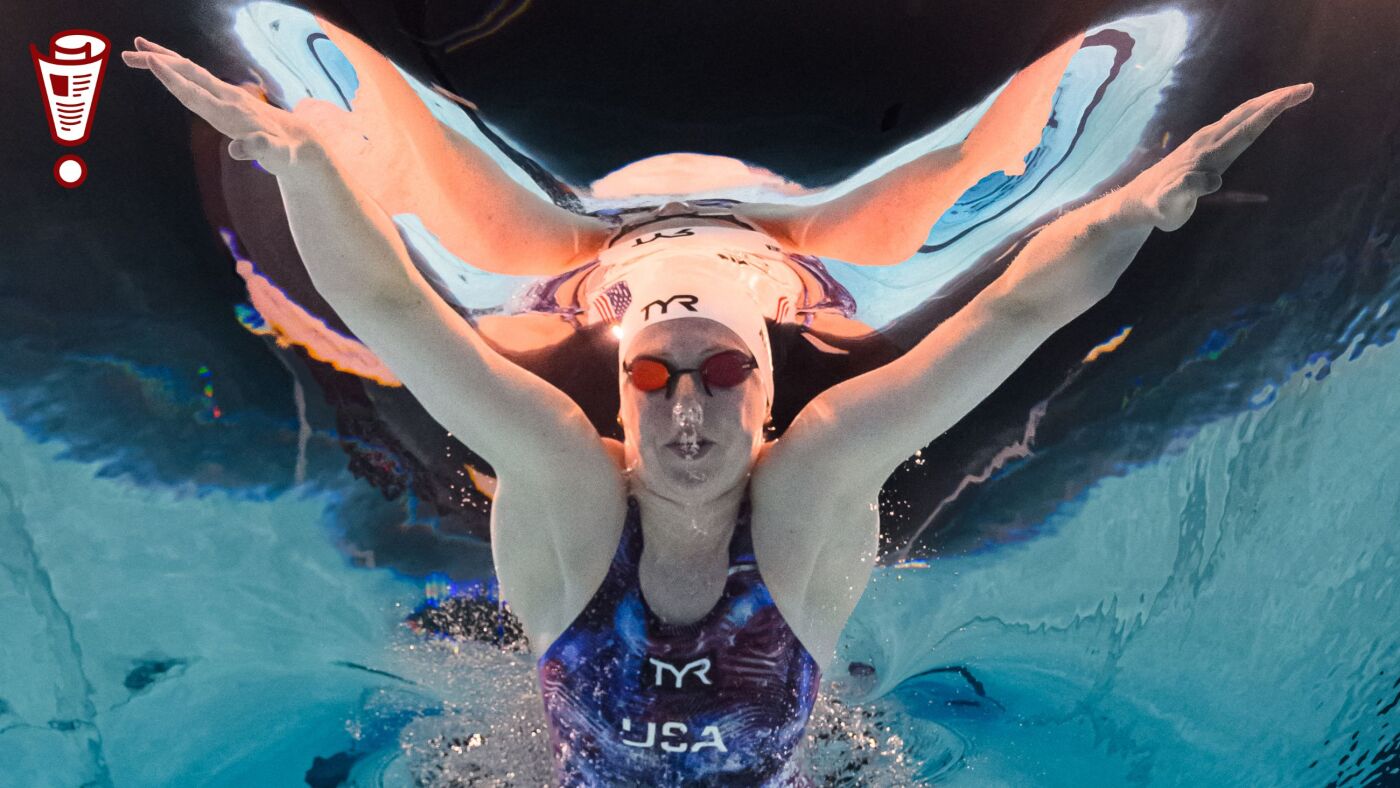World
EU countries seal €5-billion deal on military aid to Ukraine

European Union countries reached on Wednesday evening a hard-fought deal to boost and revamp military assistance to Ukraine.
The agreement struck by ambassadors in Brussels will inject an additional €5 billion into the European Peace Facility (EPF) until the end of the year, which will come on top of the €6.1 billion committed since early 2022.
The EPF gained prominence in the immediate aftermath of Russia’s war as member states rushed to provide Kyiv with the military equipment kept in their national stocks.
The facility partially reimburses the costs of these donations, allowing all countries, from the largest to the smallest, to chip in and help out. It is an “off-budget” scheme because the EU’s coffers cannot finance expenditure with military implications.
But in 2023, the EPF began to lose steam as stocks became gradually depleted and governments shifted to bilateral donations to Ukraine, rather than collectively. The facility was effectively paralysed in May after Hungary slapped a veto in retaliation for Kyiv’s designation of OTP Bank as an “international sponsor of war.”
The designation was lifted months later after an intense diplomatic push but Budapest kept preventing the release of a new €500-million tranche to top up the mechanism.
Meanwhile, a debate was launched to reform the EPF and make it more efficient, more predictable and better tailored to Ukraine’s needs.
The talks, however, became entangled in political considerations and dragged on for longer than expected: Germany insisted on discounting “in-kind contributions” (bilateral donations) from the country’s expected input while France, supported by Greece and Cyprus, demanded the EPF be used exclusively to purchase weapons and ammunition made inside the bloc.
The debate in Brussels stood in stark contrast with the events on the battlefield: in February, Ukrainian troops were forced to withdraw from the eastern city of Avdiivka, marking a small yet strategic win for Russia. The setback was linked to dwindling military supplies by Western allies, particularly from the United States, where a $60-billion support package is stuck in bipartisan infighting.
The circumstances piled pressure on ambassadors to break the impasse after multiple unsuccessful attempts. The compromise that emerged after Wednesday’s meeting contains the concessions needed to bring Paris and Berlin on board.
On the one hand, member states will give priority to EU-made weapons but will have the option to resort to alternatives produced abroad in cases when the bloc’s defence industry is unable to meet the demand. Additionally, an unspecified amount of the €5 billion will be devoted to boost joint purchases of military equipment, in line with the goals of an EU strategy unveiled earlier this month, a diplomat explained.
On the other hand, the revamped EPF will enable countries to take into account the value of their bilateral donations by using a formula to recalibrate their monetary contributions.
By reviving collective donations, Brussels hopes to alleviate the political tensions caused by the deep gaps in military donations to Ukraine: according to the Kiel Institute, Germany leads the bloc with €17.7 billion, followed by Denmark with €8.4 billion and the Netherlands with €4.4 billion. By contrast, three of the largest countries lag further behind: Italy (€0.67 billion), France (€0.64 billion) and Spain (€0.33 billion).
Paris has contested the institute’s methodology and argues its bilateral donations amount to €2.61 billion, still a far cry from Berlin’s.
In parallel, the Czech Republic has launched an initiative to procure 800,000 artillery shells from non-EU producers, which could be delivered to Kyiv in an accelerated timeframe. The project, which is set up outside of the EPF, has earned the endorsement of 18 countries, according to President Petr Pavel.
However, Prime Minister Petr Fiala later downgraded the number to 300,000 rounds.
This piece has been updated to include more information about the EPF deal.

World
Investors brace for a bigger backlash from Middle East war

World
Tel Aviv analyst shelters from 30 missile sirens in 48 hours, says Iran ‘won’t recover’

NEWYou can now listen to Fox News articles!
The past 48 hours in Tel Aviv have been unlike anything seen before, a leading security analyst has said, as sirens blared amid missile threats following Operation Epic Fury and U.S.-Israeli strikes in Iran.
“We are facing a biblical event — nothing less,” Kobi Michael, a senior researcher at the Institute for National Security Studies and the Misgav Institute, told Fox News Digital, speaking from his shelter in the city.
Like many Israelis, Michael said he had spent hours in reinforced rooms during the ongoing barrage, adding that he was “very experienced in this.”
“But this all requires time and determination, and I do hope that Trump will also have them both,” he said, speaking shortly after the president released a video message stating that the military operation would continue “until all of our objectives are achieved.”
Explosions from projectile interceptions by Israel’s Iron Dome missile defence system over Tel Aviv. (JACK GUEZ / AFP via Getty Images)
“Trump is the only one who can make the change — and that change will impact the entire region and the international order for years to come,” Michael added.
As of Sunday, Tel Aviv remained under a state of emergency following Iranian missile attacks that caused casualties and widespread damage.
According to The Associated Press, Iranian missile and drone strikes have killed approximately 11 Israeli civilians and wounded dozens more in retaliation for the U.S.-Israel strikes on Iran.
Shrapnel from missile impacts damaged at least 40 buildings in Tel Aviv, and authorities reported at least one death in the area from falling debris.
The Philippine Embassy in Israel confirmed the death of a Filipino national after a missile strike hit Tel Aviv on Saturday.
TOMAHAWKS, B-2 STEALTH BOMBERS AND ATTACK DRONES POUND OVER 1,000 IRANIAN TARGETS IN 24-HOUR BLITZ
People take shelter as Iran launched missiles and drones towards Israel following the US-Israeli attacks. ( Mostafa Alkharouf/Anadolu via Getty Images)
“We enter our shelter once the siren is heard and stay there until the Home Front Command announces that we can leave,” Michael said.
“Usually, it is about 20 to 30 minutes — unless there are further sirens during our stay. Since yesterday morning, it has happened around 30 times.”
Israel’s President Isaac Herzog also visited an impact site in Tel Aviv Sunday, delivering a message of resilience.
“The people of Israel and the people of Iran can live in peace. The region can live in peace. But what undermines peace time and again is terror instigated by this Iranian regime,” Herzog said.
EXILED IRANIAN CROWN PRINCE SAYS US STRIKES MARK ‘BEGINNING OF THE VERY END’ FOR REGIME
Israeli emergency service officer walks past building debris at the scene of a Iranian missile attack. (Ahmad GHARABLI / AFP via Getty Images)
Following the reported killing of Iran’s Supreme Leader Ayatollah Ali Khamenei and roughly 40 senior Iranian officials, Iran formed a provisional leadership council.
Iran named Ayatollah Alireza Arafi, President Masoud Pezeshkian and Judiciary Chief Gholam-Hossein Mohseni-Eje’i to lead roles.
“The Supreme Leader did not complete the necessary groundwork regarding his own succession,” Michael added.
CLICK HERE TO DOWNLOAD THE FOX NEWS APP
“Pezeshkian will face very troubling challenges due to their heavy losses, severe disruptions to control and command systems, and the massive bombing and attacks across Iran, including Tehran,” he said.
“Even if this regime doesn’t collapse, it will never be able to reconstitute itself, recover or return to its previous position,” Michael added.
World
Israel FM says Europe too divided, slams Spanish PM

Israeli minister Gideon Sa’ar said Europe “does not have unified position” on what role it should play in Iran as European ministers sought to establish a joint approach Sunday.
ADVERTISEMENT
ADVERTISEMENT
As Israel and the United States conducted a joint military strike on Iran, leading to the killing of Supreme Leader Ayatollah Ali Khamenei, Europe was kept on the sidelines.
EU member states did not participate in the operation and, in some cases, they were not informed prior as it is customary among strategic allies.
Asked whether Israel sought to keep Europe on the margins, Sa’ar said internal divisions within EU member states had kept them out of critical exchanges of operational details, unlike the United States, which the minister described as his country’s greatest ally.
“In Europe, you have all kinds of approaches,” he told Euronews. “You have countries like the Czech Republic which is strongly supporting this operation and then you have Spain, which is standing with all the tyrants of the world.”
On Saturday, Spanish prime minister Pedro Sánchez was among the most critical voices in Europe, suggesting the US-Israeli strikes on Iran risk plunging the region into total war.
“We reject the unilateral military action of the United States and Israel, which represents an escalation and contributes to a more uncertain and hostile international order,” Sánchez said Saturday. The Spanish PM reiterated that message on Sunday.
“We urge for de-escalation and call to respect international law in all conflicts,” Sánchez added. “You can be against a heinous regime, like the Iranian regime, while also rejecting a military intervention that is unjustified, dangerous and outside of international law.”
Sa’aar said Israel considers the operation “fully justified” citing the right to self-defense from a regime that “has called for the destruction of Israel” and lashed at the Spanish prime minister for sending an “anti-Israeli, anti-American message.”
“Read the statement, they are standing with Iran!” he added.
When asked if any of his European counterparts had manifested an interest in joining the military operation or provide support on the ground, Sa’ar said he held multiple exchanges with European ministers over the weekend and suggested that “if others want to join, they will know have to convey the message.”
On Sunday, Commission President Ursula von der Leyen appeared to back regime change in Iran in line with Israel and the US, saying that the “risk of further escalation is real. This is why a credible transition in Iran is urgently needed” in comments on Sunday.
Sa’ar told Euronews said the strategic strikes and the elimination of Khamenei alongside top regime commanders could “create the conditions to weaken the regime enough to allow the Iranians to take their future into their own hands”.
“The future leadership of Iran should be determined by the Iranian people through free elections. Our only requirement is that whoever comes to power in Iran must not pursue the destruction of Israel,” he said.
Watch the full interview on Euronews from 8pm CET
-

 World4 days ago
World4 days agoExclusive: DeepSeek withholds latest AI model from US chipmakers including Nvidia, sources say
-

 Massachusetts4 days ago
Massachusetts4 days agoMother and daughter injured in Taunton house explosion
-

 Montana1 week ago
Montana1 week ago2026 MHSA Montana Wrestling State Championship Brackets And Results – FloWrestling
-

 Denver, CO4 days ago
Denver, CO4 days ago10 acres charred, 5 injured in Thornton grass fire, evacuation orders lifted
-

 Louisiana7 days ago
Louisiana7 days agoWildfire near Gum Swamp Road in Livingston Parish now under control; more than 200 acres burned
-

 Technology1 week ago
Technology1 week agoYouTube TV billing scam emails are hitting inboxes
-

 Politics1 week ago
Politics1 week agoOpenAI didn’t contact police despite employees flagging mass shooter’s concerning chatbot interactions: REPORT
-

 Technology1 week ago
Technology1 week agoStellantis is in a crisis of its own making

























